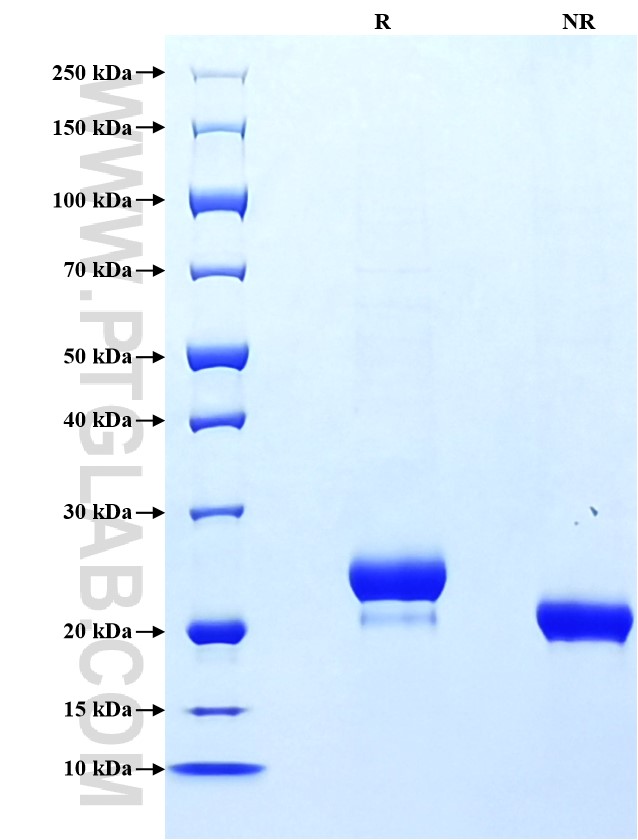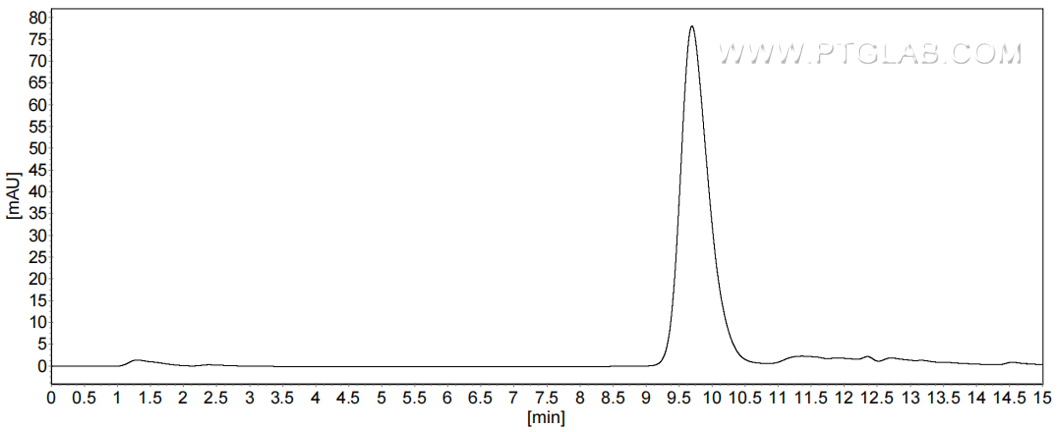Recombinant Rat Lipocalin-2/NGAL protein (His Tag) (HPLC verified)
种属
Rat
纯度
>90 %, SDS-PAGE
>90 %, SEC-HPLC
标签
His Tag
生物活性
未测试
验证数据展示
产品信息
| 纯度 | >90 %, SDS-PAGE >90 %, SEC-HPLC |
| 内毒素 | <0.1 EU/μg protein, LAL method |
| 生物活性 |
Not tested |
| 来源 | HEK293-derived Rat Lipocalin-2 protein Gln21-Asn198 (Accession# P30152) with a His tag at the C-terminus. |
| 基因ID | 170496 |
| 蛋白编号 | P30152 |
| 预测分子量 | 21.6 kDa |
| SDS-PAGE | 22-26 kDa, reducing (R) conditions |
| 组分 | Lyophilized from 0.22 μm filtered solution in PBS, pH 7.4. Normally 5% trehalose and 5% mannitol are added as protectants before lyophilization. |
| 复溶 | Briefly centrifuge the tube before opening. Reconstitute at 0.1-0.5 mg/mL in sterile water. |
| 储存条件 |
It is recommended that the protein be aliquoted for optimal storage. Avoid repeated freeze-thaw cycles.
|
| 运输条件 | The product is shipped at ambient temperature. Upon receipt, store it immediately at the recommended temperature. |
背景信息
Neutrophil gelatinase-associated lipocalin (NGAL, also known as lipocalin-2, siderocalin, or LCN2) is a small molecule of almost 25 kDa that belongs to the well-defined superfamily of proteins called lipocalins. NGAL was initially found in activated neutrophils, under its role as an innate antibacterial factor. However, it subsequently was shown that many other types of cells, including in the kidney tubule, may produce NGAL in response to various injuries. NGAL may become one of the most promising next-generation biomarkers in clinical nephrology and beyond.
参考文献:
1. Lim D, et al. (2021) CNS Neurosci Ther.27:883-94. 2. Kjeldsen L, et al. (1993) J Biol Chem.268:10425-32. 3. Devireddy LR, et al. (2005) Cell.123:1293-305. 4. Xing C, et al. (2014) Stroke.45:2085-92. 5. Asaf S, et al. (2023) Immunol Res.71:287-313.



